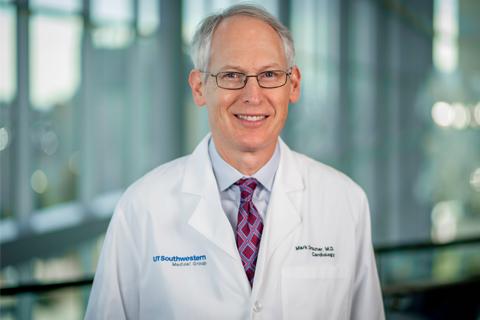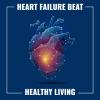
To Members of the Heart Failure Society of America:
In this month’s Journal of Cardiac Failure, my President’s Message was titled “Why Heart Failure". I described some of the aspects of our field which have made my career so very rewarding, including what I termed the “excitement and energy from rapid advances” and “the miracle of heart transplantation.” Little did I know that the two would come together shortly after I wrote the message with news that a transgenic pig heart was implanted into a human for the first time. Rarely in your career do you hear about a medical advance that takes your breath away. So it was when I saw the news from the University of Maryland team. If xenotransplantation proves viable, donor availability would no longer constrain the number of patients who could undergo heart transplantation, and long waits for suitable organs would be relegated to the history books.
Even as a fellow more than two decades ago, I knew that xenotransplantation was being investigated as a potential approach for organ failure, but I was not aware the field had advanced to the state where it would be tried in a patient. While we await further information about the transplant and the subsequent course of the recipient, the scientists, physicians, and others involved are to be congratulated for the courage to push forward in this manner.
There were a remarkable number of advances needed to make this event possible. I refer you to Dr. Mehra’s article (in press) in the Journal of Cardiac Failure (JCF) in the new “JCF Ignite!” format, a section where JCF is bringing cutting-edge issues to its readership in an exceptionally time-sensitive manner, for a more in-depth review. In brief, such advances included identifying key carbohydrates that trigger early rejection in a cross-species transplant and recognizing factors that cause incompatibility of the complement and coagulation pathways in the two species. Additionally, the potential for transmission of porcine endogenous retroviruses had to be addressed. Tools and methodology had to be developed to allow genetic manipulation of the putative donor pig to prevent such complications following transplantation. This event, this remarkable accomplishment of placing a genetically manipulated pig heart into a human in an effort to save his life, is a great example of “why heart failure.”

Next month, during Heart Failure Awareness Week 2022 from February 13 through 19, we, as a community, will have the opportunity to share the love of our discipline with the rest of the world.

As the trusted voice in heart failure, the HFSA has planned a series of events during that week, including the HFSA Virtual Heart Failure Patient and Caregiver Day on Saturday, February 12, and #HFChat2022, a Twitter chat taking place on Wednesday February 16, at 12:00 PM EST. Please place these events on your calendar as it would be fantastic to have many HFSA members participate in both.

Also, a new Heart Failure Beat: Healthy Living Podcast episode with the theme of Optimizing the Heart Failure Patient-Provider Relationship will be released, featuring Dr. Brittany Clayborne, a patient of mine, and myself. I’m confident Dr. Clayborne will inspire you as much as she has inspired me. I also encourage you to amplify the awareness of heart failure by hosting events in your local communities during this week.
Lastly, the theme for the HFSA HF Awareness Week this year will be “Heart Success: Function Not Failure.” Concerns are increasing about a nomenclature which includes the word “failure” to describe the condition we treat, given that modern therapy can meaningfully improve ventricular function in so many. We aim to get this important message out during HF Awareness Week, not only to further the conversation on whether a change in name for the condition should be considered, but also to let patients know that effective therapies are available, and they should seek help if they are not doing well. We are optimistic that they, too, can find heart success rather than failure.
Mark H. Drazner, MD, MSc, FHFSA
HFSA President 2021-2022
